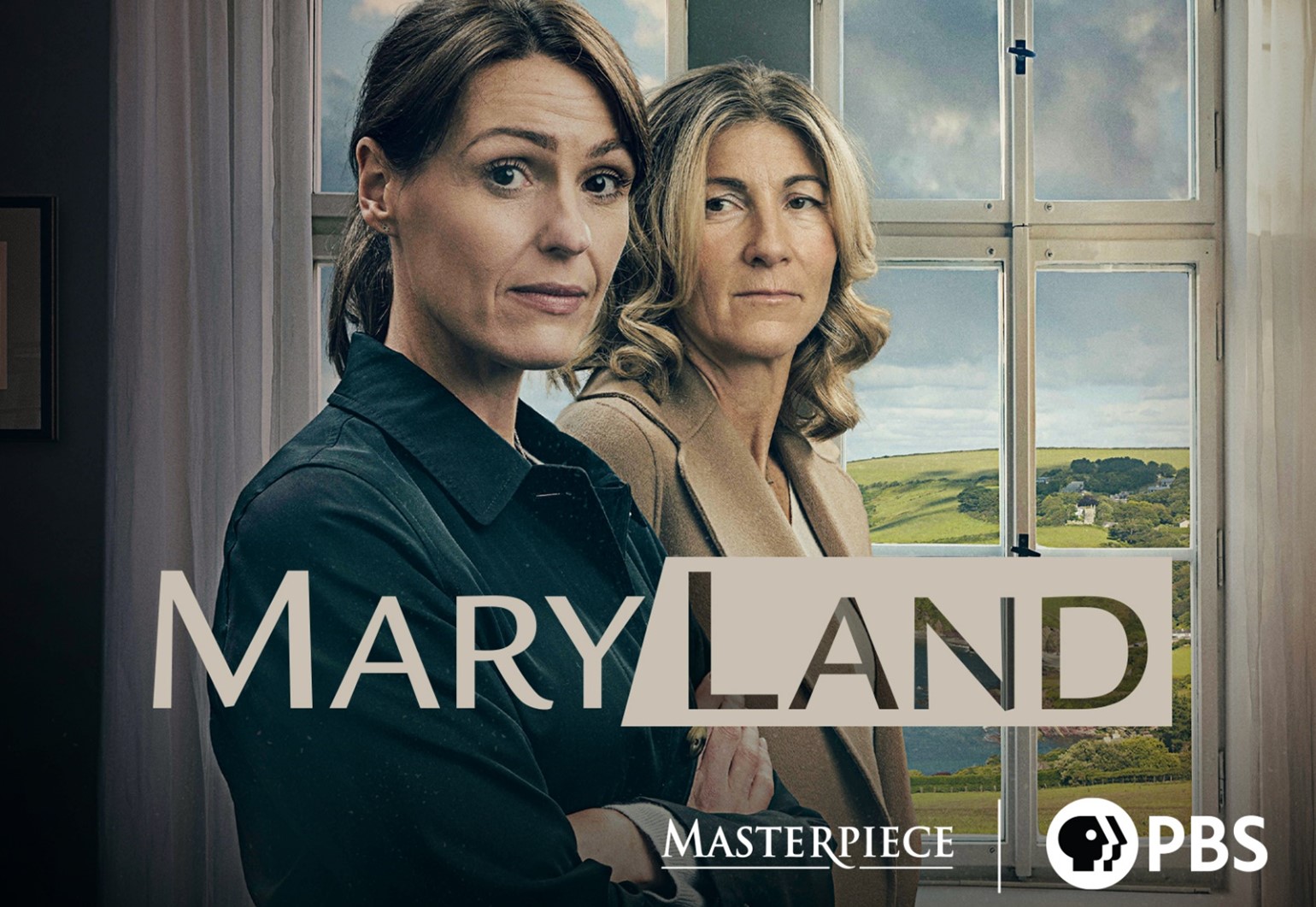Becky and I recently watched a three-part British television series, MaryLand, and liked it very much. I’ll try to avoid any spoilers in case you wish to watch it yourself, so here is the description you will find at the PBS website:
MaryLand follows two estranged sisters who reunite to unearth the truth about their mother’s sudden death and her double life on the Isle of Man. This is not so much a murder mystery as a compelling tale of two siblings opening up to each other as they work out a string of family secrets. The Guardian (UK) hails MaryLand as “joyful and incredibly affecting.”
In fact, the heart of the series is the “compelling tale of two siblings opening up to each other.” But, as the teaser suggests, there is a mystery to be solved concerning the sudden death of Mary, the two sisters’ mother. Again, no spoilers, but Mary’s death and the mystery surrounding it is more than just a screenwriter’s device to get at the emotional and relational drama of the estranged sisters reconciliation. Neither the sisters nor the viewer will be reconciled to Mary’s death. Death wins. Enough said.
In the series, Mary’s death reflects what some have identified as our culture’s refusal to deal with the reality of death. Some in our secular world hope that technology will save us from death through cyber or medically engineered immortality. Others see death as a practical solution to inconvenient life at its beginning, end, or when it becomes uncomfortable. In our world of lite religion and fluffy spirituality, funerals are “celebrations of life” where jokes are told at the expense of the dead or life after death is viewed as not much more than an extension of life before death – Grandpa at his favorite fishing hole or Grandma baking her famous chocolate chip cookies.
Our preferred euphemism for death is “passing” – no longer even “passing away,” just passing. By not saying the word we seem to hope that death will somehow lose its sting.
But Christians know we cannot hide from death behind sci-fi hope, grotesque utilitarianism, happy thoughts, or meaningless words. If death is to lose its sting it must be confronted by something stronger than itself – by love and by life.
Writing to the Corinthians, the apostle Paul asserts that death has lost its sting:
When this perishable body puts on imperishability and this mortal body puts on immortality, then the saying that is written will be fulfilled:
“Death has been swallowed up in victory.”
“Where, O death, is your victory?
Where, O death, is your sting?”
The sting of death is sin, and the power of sin is the law. But thanks be to God, who gives us the victory through our Lord Jesus Christ.
1 Corinthians 15:54-57
Death loses its sting through the victory of the one who became obedient unto death, even death on a cross. (Philippians 2:5-8)
The Welsh hymnist William Williams puts it this way:
When I tread the verge of Jordan,
bid my anxious fears subside;
Death of death, and hell’s Destruction,
land me safe on Canaan’s side;
songs of praises,
songs of praises
I will ever give to thee,
I will ever give to thee.
Guide Me, O Thou Great Jehovah – William Williams,1745
The English poet John Donne writes:
Death, be not proud, though some have called thee
Mighty and dreadful, for thou art not so;
For those whom thou think’st thou dost overthrow
Die not, poor Death, nor yet canst thou kill me.
From rest and sleep, which but thy pictures be,
Much pleasure; then from thee much more must flow,
And soonest our best men with thee do go,
Rest of their bones, and soul’s delivery.
Thou art slave to fate, chance, kings, and desperate men,
And dost with poison, war, and sickness dwell,
And poppy or charms can make us sleep as well
And better than thy stroke; why swell’st thou then?
One short sleep past, we wake eternally
And death shall be no more; Death, thou shalt die.
Death, Be Not Proud John Donne, 1609
MaryLand tells the story of two estranged sisters finding reconciliation as they gather in the shadow of their mother’s death. As the final episode fades, however, death remains proud. It need not be so. Even in times of anxious fears, we, too, are able to say, “Death, be not proud. Death, thou shalt die.”

